And the question that many customers often wonder about is “Should wisdom teeth be extracted when they are inflamed and swollen?” or “Why should wisdom teeth be extracted“.Let’s find the answers to these questions with the experts at BeDental through the following information:
Why should wisdom teeth be extracted?
As you may know, wisdom teeth are the last teeth to emerge and are located close to the throat in the dental arch. Typically, these teeth begin to grow during the mature phase, between the ages of 18 and 25.
By the time you have reached adulthood, the jawbone and soft tissues have already fused together, occupying the position of the eighth tooth. Therefore, when the eighth tooth begins to grow, it may become partially or fully trapped within the jawbone.
- In cases where the tooth partially emerges, it is prone to infection due to food particles getting stuck. Additionally, when you chew food, the eighth tooth can press against the seventh tooth, which is one of the causes of tooth decay in the seventh tooth.
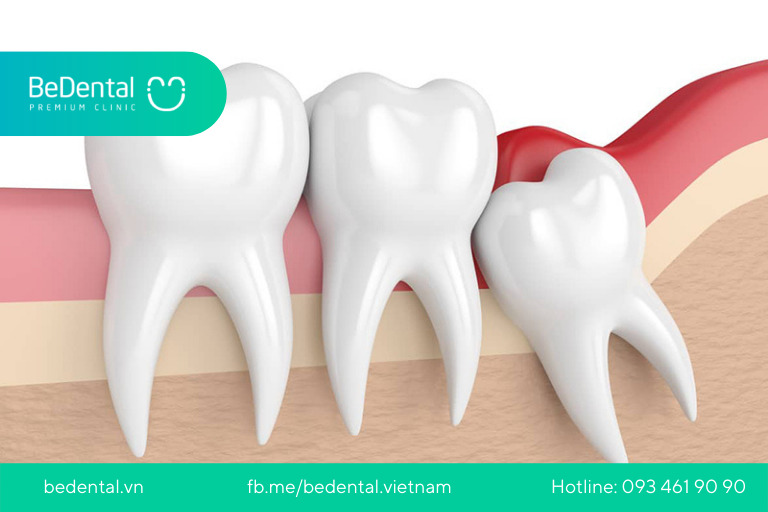
- The case of the eighth tooth growing deep within the jawbone makes oral hygiene difficult, creating conditions for bacteria to attack and thrive, increasing the risk of tooth decay and gum inflammation.
Therefore, doctors often recommend that you have your wisdom teeth extracted before serious complications occur.
Reasons for wisdom teeth inflammation and swelling
The condition of wisdom teeth inflammation and swelling can vary in each person, with sudden or persistent pain and swelling. Therefore, you need to identify the underlying causes of wisdom teeth inflammation and pain to determine whether or not to have them extracted.
The first reason for discomfort, inflammation, and swelling when wisdom teeth erupt is the tearing of the gum tissue. You may experience a soreness similar to a mouth ulcer. Tearing of the gum tissue is a natural process that occurs when wisdom teeth erupt, helping the teeth to come through the gum surface, and the pain will subside once the gum tissue heals.
The second reason is when there is not enough space in the jawbone for the wisdom teeth to fully emerge. This can lead to the teeth growing in misaligned positions, either leaning to the left or right, or more severely, causing impaction against adjacent teeth.
In more dangerous cases, the wisdom teeth may become trapped beneath the gum and unable to fully emerge due to lack of space. During this stage, you will experience swelling and throbbing pain in the gum and jawbone.
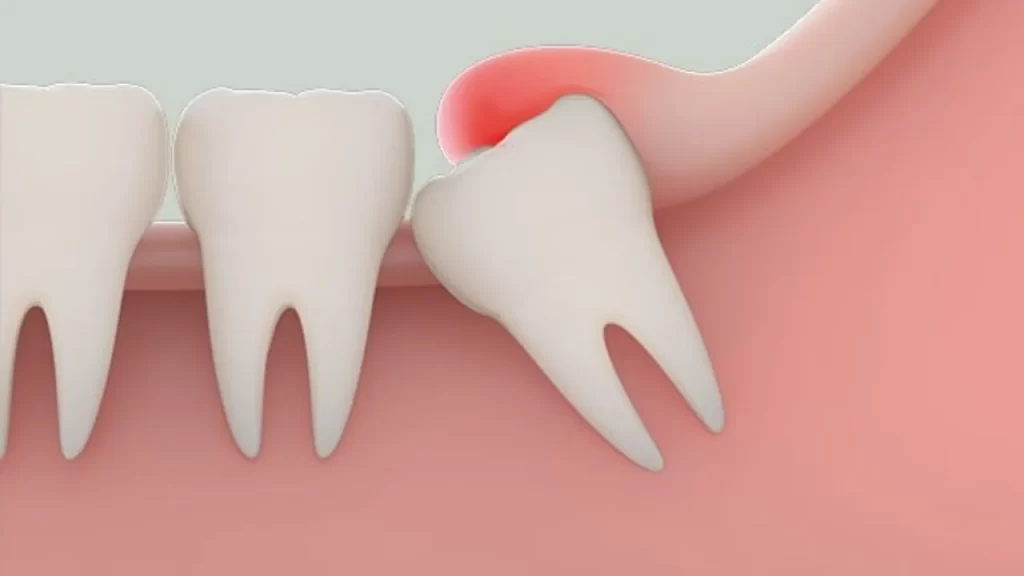
The third main reason is that wisdom teeth are located at the back of the mouth, making oral hygiene difficult and leading to tooth decay, gum inflammation, impaction, etc. This is also one of the causes of wisdom tooth pain.
If you do not address this issue in a timely manner, the prolonged inflammation and tooth decay can spread and affect the adjacent teeth, causing pulpitis (inflammation of the tooth pulp).
Can swollen wisdom teeth be extracted?
Can swollen wisdom teeth be extracted? Extracting wisdom teeth is necessary in cases where the teeth are misaligned or impacted and causing pain.
However, whether or not swollen wisdom teeth can be extracted needs to be carefully considered based on the severity of the infection and swelling in order to make the safest decision.
To answer the question of whether or not to extract swollen wisdom teeth, experts believe that if your wisdom teeth are showing signs of severe swelling and pain, it is not recommended to extract them immediately as there is a high risk of jawbone infection, which can affect the nerves and the whole body.
At this stage, there may be a significant number of harmful bacteria in the oral cavity, and if wisdom tooth extraction is performed, it can lead to the spread of infection throughout the jaw.
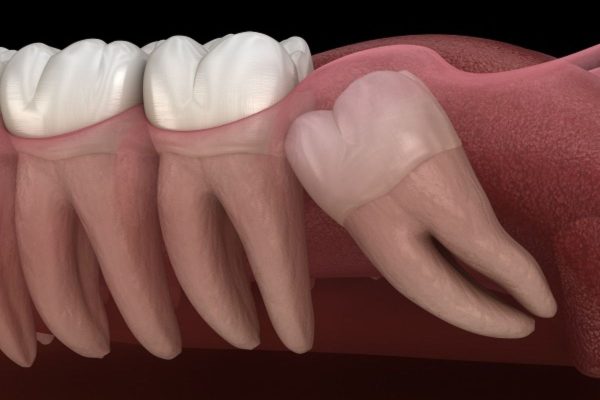
Instead of immediately extracting the wisdom tooth, the dentist will prescribe antibiotics, pain relievers, clean the infected tissue, or perform other procedures to completely treat the inflammation and infection until the swollen and painful gum area is under control before proceeding with the extraction.
When is the best time to have wisdom teeth extracted?
-
When the wisdom tooth grows in a misaligned position causing swelling and discomfort
The phenomenon of wisdom teeth growing in a misaligned position, such as growing crooked, growing under the gum, growing under the jawbone, accounts for more than 60% of current cases of wisdom tooth extraction.
If the tooth grows in the correct position, it will not affect your oral health and there is no need to remove it unless there is a gap that allows food debris to accumulate.
When the wisdom tooth grows in a misaligned position, it can have a significant impact on the nerves, leading to inflammation and infection of the tooth root. Misaligned wisdom teeth can cause discomfort, swelling, and discomfort when moving the jaw.
When encountering this situation, you should visit dental specialists for consultation and treatment of the infection before proceeding with the extraction.
-
When the wisdom tooth is affected by tooth decay, affecting the tooth pulp
Tooth decay in wisdom teeth is a common problem in oral health. The wisdom tooth, being located at the back, gradually accumulates and traps the food you eat, leading to tooth decay.
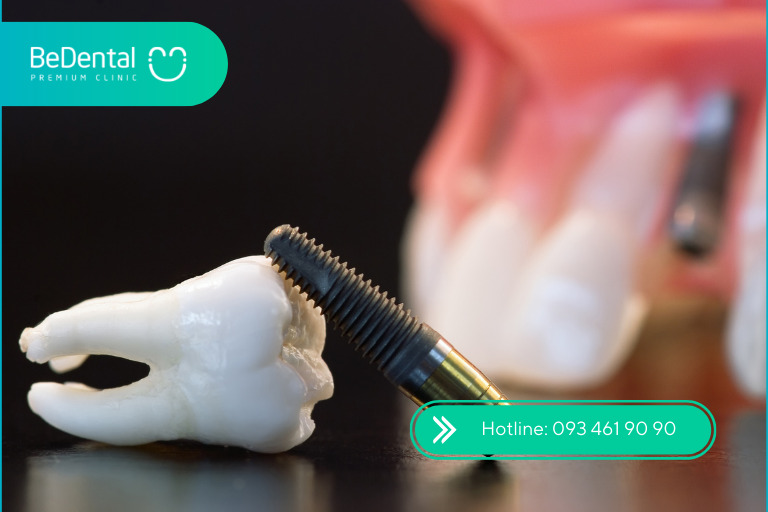
When wisdom teeth have tooth decay, if not treated in a timely manner, it can spread to other teeth, affect the tooth pulp, and lead to tooth decay. Therefore, the best approach is to extract the decayed wisdom tooth while maintaining regular oral hygiene and regularly checking the teeth to ensure they are strong and healthy.
-
When wisdom teeth have gum inflammation
When wisdom teeth do not grow normally and are trapped under the gum, it can cause swelling and discomfort. If not detected early, it can lead to infected tooth roots and pulp, causing external resorption of the jawbone.
What to do when wisdom teeth have tooth decay? 4 considerations after wisdom tooth extraction
If you notice any unusual signs such as bleeding while brushing, gum pain, etc., you should seek direct treatment from a specialist to completely treat the inflammation before proceeding with a safe wisdom tooth extraction.
Read more: What to do when wisdom teeth have tooth decay? 4 considerations after wisdom tooth extraction.
When should you not extract wisdom teeth?
-
When the body is weak or ill
When you are ill, your body tends to be tired and have a weakened immune system. At this time, it is not advisable to extract wisdom teeth as it can greatly impact your body and oral health.
Before proceeding with wisdom tooth extraction, you need to restore your physical strength by engaging in light exercise, moderate eating and drinking, and proper rest to enhance your body’s immunity.
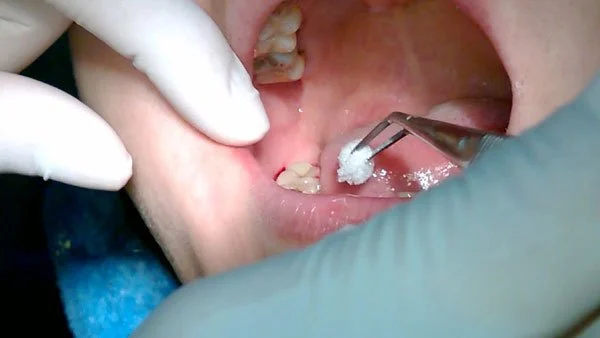
-
When pregnant:
It is not advisable to extract wisdom teeth during this time as it is not good for the health of both the mother and the baby. During pregnancy, the calcium levels in the mother’s body are often unstable and constantly changing.
After wisdom tooth extraction, it is necessary to avoid certain foods to limit swelling, gum pain, and other potential complications. This can lead to nutritional deficiencies in the mother, which can affect the fetus.
In addition, during the process of wisdom tooth extraction, anesthesia is typically administered in significant doses, which can have a significant impact on the health of the baby in the womb.
● During menstruation
At this time, your body has already lost a significant amount of blood for the menstrual cycle, and your body’s condition and health are not stable. If you decide to extract wisdom teeth during this time, it can weaken your health and the wound may heal slower than usual.
Wait until your health is stable, meaning after the monthly menstrual phase, before proceeding with the extraction of wisdom teeth.
Best time for wisdom tooth extraction
Wisdom teeth that grow straight may not necessarily need to be extracted if we maintain proper and regular oral hygiene, which helps prevent plaque buildup between teeth that can lead to prolonged swelling and discomfort.
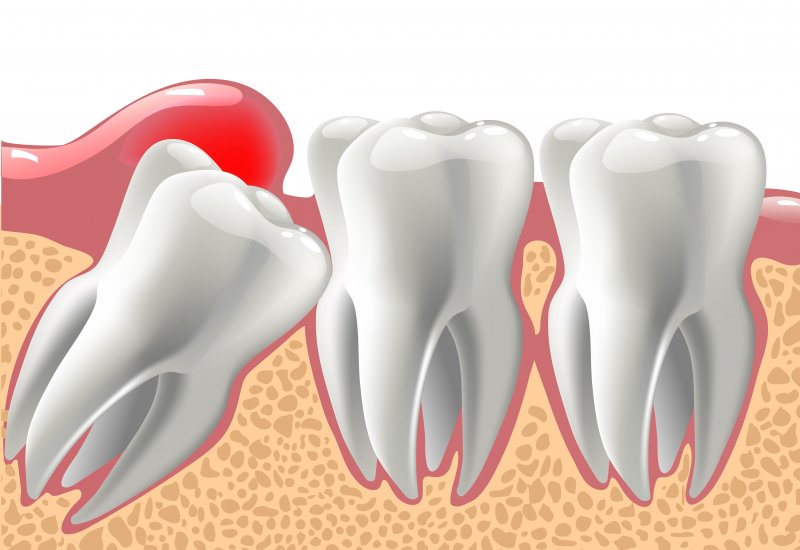
After wisdom tooth extraction, taking care of your teeth can help prevent gum inflammation and promote quick healing of the extraction site. You should follow these steps:
-
Take medication as instructed by the dentist
Typically, after wisdom tooth extraction, dentists will prescribe medication and provide instructions on the correct dosage. These medications may include antibiotics, pain relievers, anti-inflammatory drugs, and other common complications. It is important to follow the dentist’s instructions, even if there are no signs of inflammation or fever, to ensure good health.
-
Apply ice packs to the swollen and painful area
After the anesthesia wears off, you may experience numbness and soreness in the recently extracted tooth socket. At this time, you can use an ice pack on the outside of the extraction area. Applying ice helps constrict blood vessels and reduce swelling and pain. You should apply the ice pack for about 20 minutes, then take a 20-minute break before reapplying the ice pack. Repeat this cycle until the pain subsides.
-
Gently brush your teeth in the early days after wisdom tooth extraction
Despite the pain after the extraction, you should still brush your teeth after 4 hours of extraction, combined with rinsing your mouth with saltwater to clean the gum surfaces. This helps limit bacteria buildup in the oral cavity, which can cause gum inflammation and throat infections. Only brush your teeth gently, avoiding the extraction site, and rinse your mouth with saltwater. After 3-4 days without signs of inflammation or swelling, you can resume normal brushing.
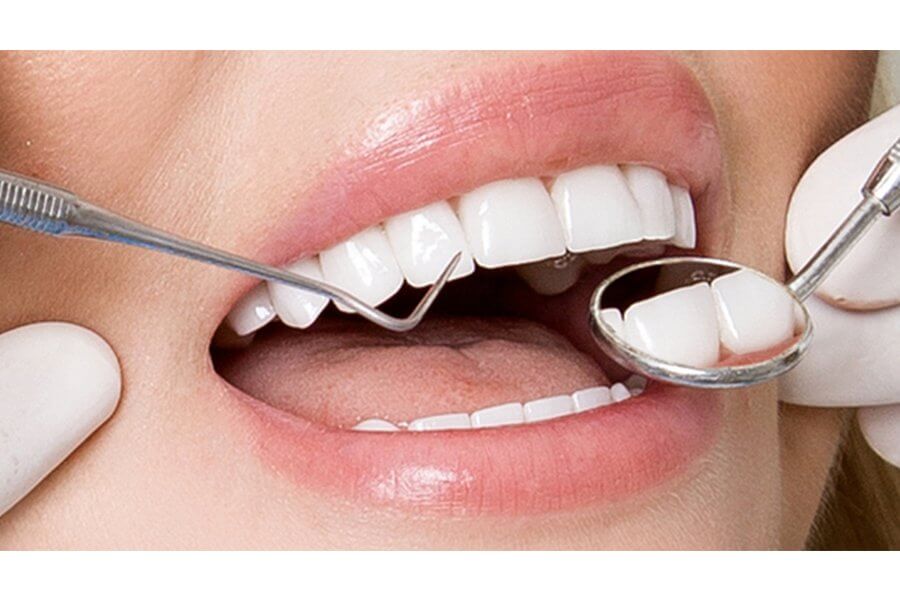
-
There is a scientific diet after wisdom tooth extraction.
Within the first 24 hours, you should avoid eating because the jawbone is still unable to move strongly, and you may accidentally bite your tongue or gums without realizing it, causing damage to the gums.
You should only choose soft foods that are not too spicy or hot, such as porridge, eggs, soft cakes, smoothies, pudding, etc., to provide gentle relief. Avoid choosing hard, chewy, or crispy foods, or meats that require tearing with your teeth.
In addition, you should schedule regular check-ups at the dental clinic for oral hygiene to prevent plaque buildup in the gum area and between teeth that cannot be cleaned by normal home methods.
Reputable wisdom tooth extraction address in Vietnam
For cases where wisdom teeth are decayed, causing prolonged swelling and pain, or gum inflammation, it is advisable to visit a reputable dental clinic for timely and definitive treatment, avoiding prolonged delays.
At Bedental currently situated in Vietnam, you will receive comprehensive and prompt support for your oral health through the following four steps:
- Wisdom tooth X-ray imaging, consultation, and free solution advice
- Blood tests and oral hygiene cleaning before wisdom tooth extraction
- Anesthesia administration and wisdom tooth extraction
- Prescription medication and reminders for post-extraction care.
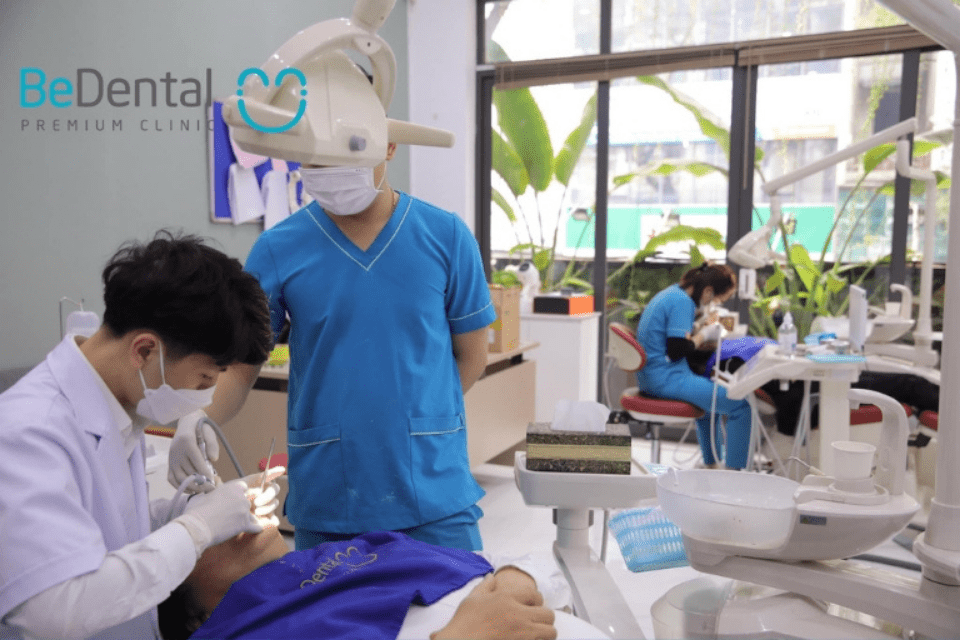
Conclusion
If you have any dental issues or are looking for a reputable wisdom tooth extraction address, please contact the information below directly. BeDental is always ready to serve you with dedication. All procedures are carried out in a sterile room, ensuring absolute safety for customers throughout the process.
Trám Răng Là Gì? Trám Răng Có Đau Không? Mất Thời Gian Bao Lâu?
Nhổ răng khôn
Tư vấn chuyên môn bài viết:
BÁC SĨ DƯƠNG THỊ THÙY NGA
BEDENTAL - TOP STANDARD DENTISTRY SYSTEM
In HANOI
Address 1: 7B Thi Sach St, Ngo Thi Nham, Hai Ba Trung Dist, Ha Noi. - 0934.61.9090
Address 2: No 129 Hoang Ngan, Yen Hoa, Cau Giay Dist, Ha Noi. - 0934.61.9090
In HO CHI MINH
Address 1: 53 -55 -57 Pho Duc Chinh St, Nguyen Thai Binh, Dist. 1, Ho Chi Minh. - 0766.00.8080
Working: 9am - 8pm everyday
Website: https://bedental.vn/en/





